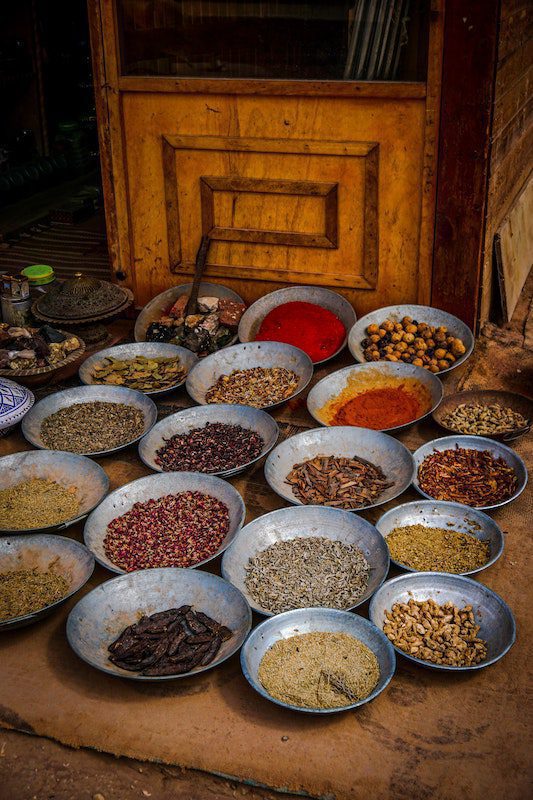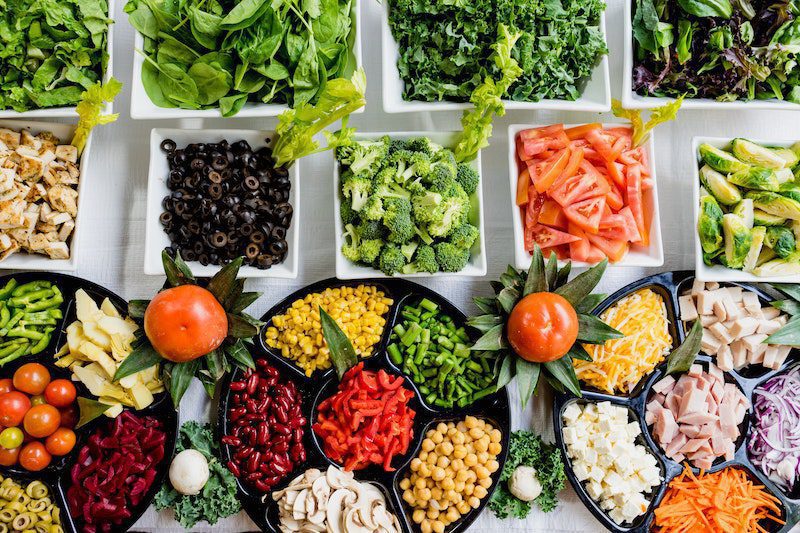Revitalizing Wellness with Dr. Sohn: Traditional Herbal Medicine in Beaverton, Oregon
Seeking a holistic approach to health and wellness? Immerse yourself in the ancient wisdom of herbal medicine with Dr. Kihyon Sohn in Beaverton. Drawing upon millennia of tradition, Dr. Sohn expertly crafts personalized herbal formulas to address your specific needs. Whether you’re experiencing acute or chronic conditions, herbal remedies offer a natural path towards relief and rejuvenation.
What is herbal medicine?
From ancient traditions to modern applications, herbal medicine stands as a testament to the healing power of nature. Deeply rooted in Traditional Asian Medicine for millennia, herbal remedies, alongside acupuncture and moxibustion, have offered solace and restoration to countless individuals. Through centuries of clinical experience, particularly in Asia, herbal formulas have honed their ability to alleviate symptoms and guide patients towards recovery.

Acupuncture, moxibustion, and herbal medicine
In Korean medicine, it’s often said that acupuncture comes first, moxibustion second, and herbal medicine third for treating conditions. This reflects the belief that Korean acupuncture can swiftly address acute conditions by clearing blockages in meridians, known as energy channels. However, if left untreated, the blockage might worsen, requiring the deeper healing provided by moxibustion. Finally, herbal medicine becomes most beneficial when the issue affects internal organs, as oral administration allows for its targeted delivery. In clinical settings, practitioners often combine these modalities, like Korean acupuncture and moxibustion or Korean acupuncture and herbal medicine, to achieve faster and more comprehensive healing.
Food is medicine

Koreans often say that food is medicine, emphasizing the profound impact it has on our well-being. Every bite we take, from grains and vegetables to freshly squeezed juices, nourishes our bodies and influences our health. As the saying goes, “what you eat today becomes you tomorrow,” highlighting the crucial role food plays in shaping our physical and mental state.
Food Properties
In traditional Korean medicine, the concept of “food as medicine” extends beyond simple nutrition. It recognizes that each food possesses unique properties, influencing specific organs and temperaments within the body. For example, Dr. Cliff Park, a Californian practitioner, suggests that mung bean can help “settle” the liver and kidneys, but advises caution for individuals with weakened liver or kidney function. Similarly, broccoli is considered beneficial for both the liver and lungs, while cucumber is seen as soothing for the spleen, and olive oil is believed to support the liver’s health.
However, relying solely on any single food for its specific properties has limitations. A diverse and balanced diet offers a wider range of benefits. By consuming a variety of foods, we can harness the complementary or counteracting properties of different ingredients, promoting overall well-being.
Food Affects Organs
Dr. Cliff Park in California tasted all of the foods and discovered how they affected organs.
| CQ10: tonify heart and kidneys. MSM: sedate all five Zang organs. Eggplant: tonify liver. sedate spleen. Sweet potato: tonify lungs. Oat: sedate spleen. Perilla leaf: tonify liver. sedate lungs and spleen. Raw cabbage: sedate spleen. Green juice: tonify liver. Mung bean: sedate the liver and kidneys. Green tea: tonify liver. |
| Sweet pumpkin (inner yellow part): tonify heart and lungs. Sweet pumpkin (skin): descend qi. Chicken: tonify spleen. Acorn: sedate the liver and kidneys. Pork: tonify the liver and kidneys. sedate spleen. Fish with a bluish back: tonify liver. Strawberry: tonify heart, liver, and lungs. Peanut: tonify spleen. Romaine lettuce: sedate liver. Mango: sedate the liver and spleen. |
| Buckwheat: sedate spleen. Radish: tonify lungs. Water dropwort: tonify liver. Dandelion: sedate liver. Banana: tonify heart and spleen. Purple sweet potato: tonify liver. Chinensis: tonify liver. Chive: Tonify kidneys and spleen. Brocolli: tonify liver. sedate lung. Blueberry: tonify liver. |
| Bread: tonfiy spleen. Sevenup: sedate spleen. Celery: sedate liver. Black bean: tonify liver and kidneys. Pine mushroom: tonify liver and spleen. Watermelon: sedate heart. Sprite: sedate spleen. Spiruna: sedate liver. Spinach: sedate liver. Cilantro: sedate spleen. |
| Ama seed: tonify liver. Almond: tonify lungs. Avocado: sedate liver. Asparagus: sedate liver. Lamb: tonify spleen. Onion: tonify spleen. Thistle root: sedate liver. Goat meat: tonify spleen. Ganoderma Lucidum mushroom: sedate heart and lungs. tonify liver. Orange: tonify heart and liver. |
| Omega 3: tonify liver. Schizandra: tonify the liver and spleen, and lung. Cucumber: sedate spleen. Olive: tonify liver. Pea: sedate liver. tonify gallbladder. Burdock: sedate spleen. Milk: tonify heart. Genseng: tonify heart and lung. Plum: tonify liver. Chaga mushroom: sedate the liver, kidney, and spleen. |
| Sesami: sedate liver. Korean melon: sedate the liver and stomach. tonify spleen. Chocolate: tonify the heart. Seasoned aster: tonify liver. Chia seed: tonify liver. Chicory: sedate liver. Cantaloupe: tonify liver. Coffee: sedate liver. Kale: sedate liver. Coconut water: tonify heart and lungs. |
| Coke: tonify spleen. Cauliflower: sedate liver. tonify lungs. Bean: tonify spleen. Bean sprouts: tonify heart and lungs. Kiwi: sedate liver. Turkey: tonify the heart, liver and lungs. sedate spleen. Tomato: tonify heart and spleen. Adjuki bean: tonify spleen. Probiotics: tonify lungs and spleen. Honeydew: tonify liver. |
| White corn: tonify lungs. Walnut: tonify lungs and spleen. Pumpkin: tonify spleen. Red ginseng: tonify spleen. Chemical condiments: tonify spleen. |
Classic herbal formula
With roots stretching back millennia, herbal formulas have a rich history of clinical use in ancient China. Through generations of practitioners diligently testing various herb combinations, a vast repertoire of effective formulas emerged. These “classic formulas,” documented in renowned texts like the Shang Han Lun and Jin Gui Yao Lue, continue to guide modern practitioners like Dr. Sohn in Beaverton, Oregon, who carries the tradition of herbal medicine forward.
Shang Han Lun
During the later Han dynasty in ancient China, Zhang Zhongjing drew upon generations of wisdom and existing medical texts like the Huang Di Nei Jing Su Wen and Pulse Pattern Differentiation to compile groundbreaking herbal formulas. His magnum opus, known in English as the Treatise on Cold Damage (Shang Han Lun), became a cornerstone of Traditional Chinese Medicine.
The Shang Han Lun‘s prologue reveals a personal tragedy; Zhang Zhongjing lost two-thirds of his family to “cold damage disorders,” eerily similar to modern diseases like Covid-19. This profound loss propelled him to become a revered physician, even surpassing his teachers in clinical expertise.
Six meridian pattern differentiation
In his groundbreaking medical text, Shang Han Lun, Zhang Zhongjing established a system for diagnosing and treating diseases based on their specific patterns. This system categorizes different stages of illness into six main categories, each named after a particular meridian – the vital energy channels in Traditional Chinese Medicine.
- Taiyang disease: floating pulse, headache, stiff neck, and aversion to cold.
- Shaoyang disease: a bitter taste in the mouth, dry throat, and dizziness.
- Yangming disease: excessiveness in the stomach and intestines.
- Taiyin disease: abdominal fullness, vomiting, food stagnation, worsening diarrhea, and intermittent abdominal pain. If you use forced defecation, it makes the epigastric region becomes knotted and hard.
- Shaoyin disease: feeble and thin pulse and tendency to fall asleep.
- Jueyin disease: extreme thirst, qi surging up to the chest, pain and heat inside the heart, no appetite despite hunger, eating makes throwing up a parasite, and forced defecation leading to continual diarrhea.
Acupuncturist and herbalist in Beaverton, Oregon
Dr. Kihyon Sohn, a practitioner of traditional herbal medicine in Beaverton, Oregon, emphasizes a unique approach: formulas with a smaller number of carefully chosen herbs. This philosophy prioritizes precision and effectiveness. When these formulas precisely match a patient’s specific symptoms, they can often work faster and deliver stronger results. For convenience, Dr. Sohn prescribes herbal granules that dissolve easily in room-temperature water. This eliminates the need for boiling large quantities of herbs, making the treatment process more accessible and user-friendly.

Drawing inspiration from both ancient Chinese and Korean medical traditions, Dr. Kihyon Sohn brings herbal medicine to Beaverton, Oregon. He specializes in “classical herbal medicine,” a time-tested approach with thousands of years of history originating in ancient China. Before prescribing tailored formulas, Dr. Sohn utilizes a comprehensive method developed by Dr. Roh in Korea through extensive clinical experience. This allows him to select the most suitable herbal solutions for resolving specific symptoms and easing patient discomfort more effectively. While herbal medicine can be beneficial on its own, Dr. Sohn often combines it with Korean acupuncture treatments for enhanced results. His practice attracts patients from Beaverton, Portland, Tigard, Vancouver, Lake Oswego, and beyond, who appreciate the unique value of his integrative approach.
Our holistic wellness clinic is conveniently located on Beaverton-Hillsdale Hwy, east of OR 217, making it easy to reach from Beaverton, Aloha, Hillsboro, Tigard, Lake Oswego, Northwest Portland, and Southwest Portland.
For your comfort, we offer on-site parking, a handicapped-accessible entrance and restroom, and treatment rooms on the ground floor. To schedule an appointment, please call us at (503) 404-4567. While same-day appointments may be available, it’s best to call or book online in advance to secure your preferred time.